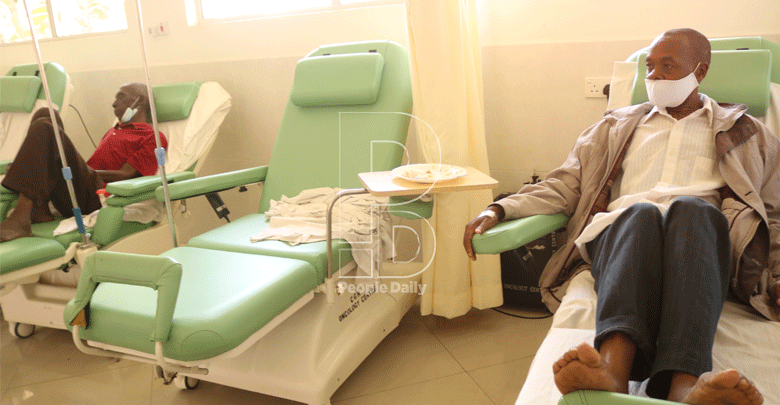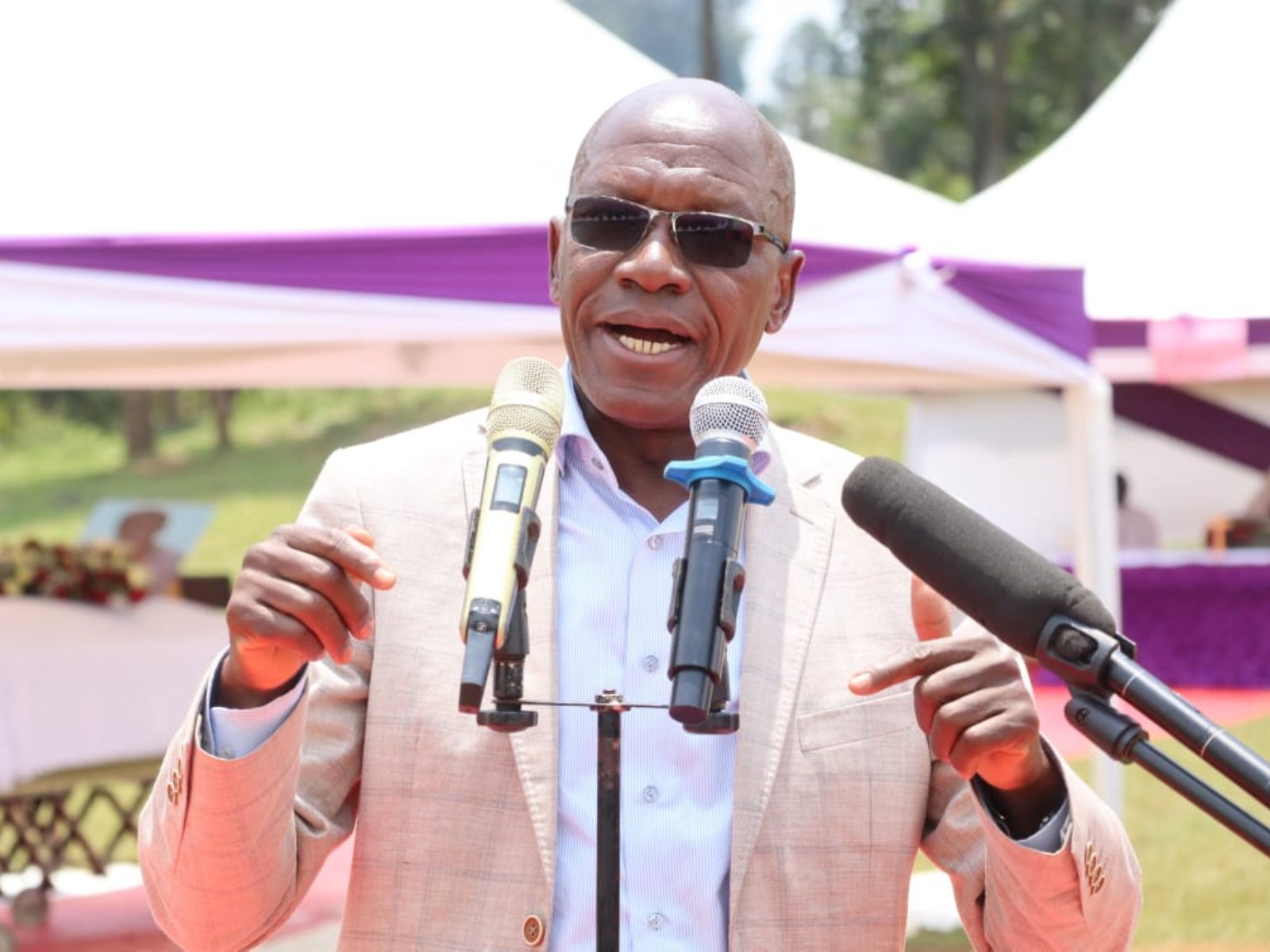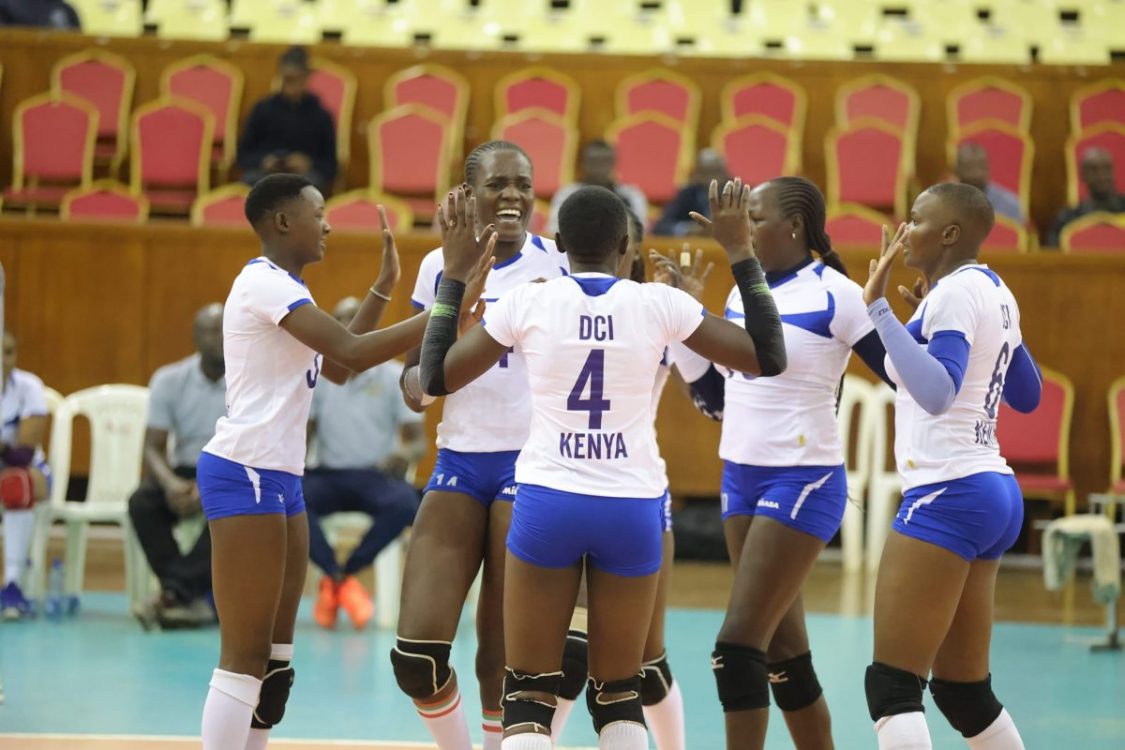Cancer patients dying as nurses strike drags on

James Momanyi walks laboriously into the consultation room at the Coast General Hospital (CGH) Cancer Centre (Oncology Unit) where he is scheduled to undergo a chemotherapy for colon cancer.
Despite his failing health, Momanyi looks at the bright side of life – that he has survived the last three months.
Two of his close friends whom he met at the facility were, however, not as lucky.
“We met here and began our chemotherapy sessions together. Our appointments were on similar dates and since we all had cancer, we checked on each other while at home and looked forward to meeting during chemo sessions.
They became part of my life and learning and accepting their death has not been easy,” Momanyi said.
When health workers in Mombasa county downed tools in October last year, Momanyi and his friends had no option but to go without chemotherapy sessions.
Hopes dimmed
On Monday, there were signs of hope when he was advised to visit the hospital after word went round that acute cancer patients were being admitted following doctors’ resumption of work two weeks ago. But his hopes dimmed when he arrived at the hospital.
“I have been here since 7am and the clinical officer in charge informed me that I cannot have a chemotherapy session, because there are no nurses to administer the medicine,” he told the People Daily at around 3pm.
He added: “I have just decided to sit here and see if I can get any assistance. On several occasions, I have been turned away because health workers were on strike.”
Momanyi had been attending chemo sessions at the hospital every three weeks before health workers went on strike.
Although his pain and condition gets worse every time he misses his medication, he says he has no option but go back home and wait for the nurses to call off their strike.
The hospital’s Oncology Centre, which normally attends between 20 and 50 patients a day, has not been operational since the nurses strike started.
That means patients like Momanyi not only have to endure extreme suffering, many, including his two friends, have died because they could not access treatment.
Sorry situation
This is the sorry situation in most public hospitals across the country. Cancer patients, who require chemotherapy and other forms of treatment, are in extreme pain, have died or are dying.
The situation is replicated in county referral and other public hospitals where healthcare workers have downed tools demanding improved pay and other considerations.
Data from the Ministry of Health, Kenya records 30,000 new cases of cancer every year, out of which 78 per cent succumb to the deadly disease.
As a result of the latest strike, families with cancer patients have been forced to spend thousands of shillings to buy medicine, some which costs upwards of Sh30,000, which they have been advised to administer to patients at home.
Several other patients have been forced to default on treatment and taking drugs, even as doctors warn that the trend endangers their lives.
Nyambura Kariuki, a consultant medical oncologist at Kenyatta National Hospital (KNH) and Nairobi Hospital warns that defaulting on treatment either increases the chances of cancer recurring or spreading in the body.
“Cancer patients should try all possible ways to ensure they get the required treatment, whether chemotherapy or radiotherapy, on time. It is dangerous to miss any session,” says Nyambura.
The doctor said cancer patients are usually placed on a designed treatment course to reduce pain and prevent the disease from recurring.
“Cancer patients who undergo surgery, chemotherapy and radiography are given some medicines to reduce risks of cancer coming back or spreading.
Missing medication risks the cancer coming back or spreading in the body faster,” said Catherine Nyongesa, a consultant oncologist at KNH and the founder and Chief Executive of Texas Cancer Centre.
Nyongesa says clinical outcomes associated with defaulting on medication include disease progression, treatment resistance and poor survival rates.
Records at the CGH show that 14 cancer patients who had been undergoing chemotherapy at the Oncology Unit before health workers went on strike have died in the last two months due to lack of treatment.
According to records obtained from the Oncology Centre, 12 of the deaths occurred at the centre between October 5 and 21, last year, while a 47-year-old patient died at home, two days after he was turned away at the facility.
Documents further show that 42-year-old Lilian Kobia died at a private hospital on December 7 after she was discharged from the facility following the strike.
According to her husband Dennis Omondi, Lilian had been undergoing treatment for ovarian cancer.
Omondi says that his wife’s health had improved after she started chemo but after four sessions, health workers downed their tools and he was forced to take her home.
“I was called and told l had to go for my wife since the hospital had discharged all the in-patients.
I took her home and watched her health deteriorate, since l couldn’t afford chemotherapy sessions in private hospitals,” he said.
After six weeks of pain and agony, Omondi took Lilian to a private hospital in Bamburi where she died a week later.
“At the hospital, she was only given painkillers. There was no chemotherapy and within seven days she had died,” said a distraught Omondi who is yet to come to terms with the death of his wife who left behind a three-year-old son.
Turned away
A week ago, Phylis Wandia lost her father to cancer at the Coast General Hospital.
Phylis said her father John Wandia was undergoing chemotherapy sessions at the hospital after he was diagnosed with throat cancer a year ago.
“I had been taking care of him and ensuring he went for chemotherapy and radiography sessions.
However, on December 28, we were turned away at the hospital and told to seek treatment at a private hospital but we had no money so we came to the casualty ward here at Coast General,” she said.
Two weeks later, on January 11, her father died of cancer complications.
Sources at the hospital said nurses at the oncology unit have been contemplating going back to work to save lives.
“We are thinking of allowing some of our colleagues to resume work. Talks are on to come up with a way of saving lives once the union allows the arrangement,” said a nurse attached to the unit.
Nurses at public hospitals downed tools in October last year. Among their grievances are salary delays and non-remittance of statutory deductions.











